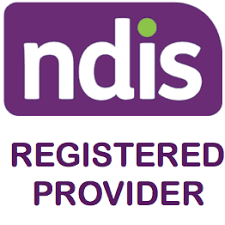Apps
Definition of Intellectual Disability
According to the Diagnostic and Statistical Manual of Mental Disorders (DSM-V), intellectual disability is a developmental disorder that occurs before the age of 18 years old and is characterised by significantly below-average intellectual functioning and deficits in adaptive functioning (e.g. communication, social participation, education, play/leisure and activities of daily living) (American Psychiatric Association, 2013; Parekh, 2017).
Causes of Intellectual Disability
The causes of intellectual disability are categorised on the basis of when they occur in the developmental period, i.e. before birth, during birth, or after birth. Some of the identified causes include:
- Before birth: genetic causes, exposure to maternal infection, alcohol, or drugs
- During birth: prematurity, low birth weight, and various labour/delivery-related events
- During childhood: complications from infectious diseases, accidental injury to the brain, and poverty
Types of Intellectual Disability
Individuals with intellectual disabilities are often placed into levels to reflect the severity of their intellectual and adaptive functioning impairment (APA, 2013). These levels include:
- Mild (Intelligence Quotient (IQ)) Score Range: 50 – 70)
- Moderate (Intelligence Quotient (IQ)) Score Range: 35 – 49)
- Severe (Intelligence Quotient (IQ)) Score Range: 20 – 34)
- Profound (Intelligence Quotient (IQ)) Score Range: Less than 20)
Symptoms
For an individual to be diagnosed with an intellectual disability, the following three criteria must be met:
Criteria 1 – deficits in intellectual functioning (intelligence)
This includes various mental abilities:
- Reasoning
- Problem solving
- Planning
- Abstract thinking
- Judgment
- Academic learning (ability to learn in school via traditional teaching methods)
- Experiential learning (the ability to learn through experience, trial and error, and observation)
Criteria 2 – deficits in adaptive functioning
Adaptive functioning refers to a collection of skills in communication, social, conceptual, personal independence, school or work functioning that enables the individual to cope with common life demands, and function independently, effectively, and as expected in an age-appropriate manner (American Psychiatric Association, 2013).
These limitations occur during the developmental period. This means problems with intellectual or adaptive functioning were evident during childhood or adolescence.
For some practical insights, read the blog 'Why Homework can be Particularly Challenging for Neurodiverse Students'.
References
Parekh, R. (2017). What is Intellectual Disability?
Behaviour Help
If you are supporting an individual with this diagnosis, please refer to our services and resources. They aim to help children, adolescents and adults achieve better communication, social, emotional, behavioural and learning outcomes. So whether you are wanting guidance on parenting, teaching, supporting or providing therapy, Behaviour Help is at hand.
Note: This is not an exhaustive list of all the possible causes, symptoms and types but some general information that can be further explored. Based on what you have read if you have any concerns about an individual, please raise them with the individual/s. The caregiver can then raise these concerns with their local doctor who can provide a referral to the relevant professional (e.g. paediatrician, psychologist, psychiatrist, allied health professional and learning specialists) for diagnosis and treatment if appropriate.
Get Started with Behaviour Help App
Assess-manage-prevent behaviours of concern efficiently and effectively with the Behaviour Help App.



